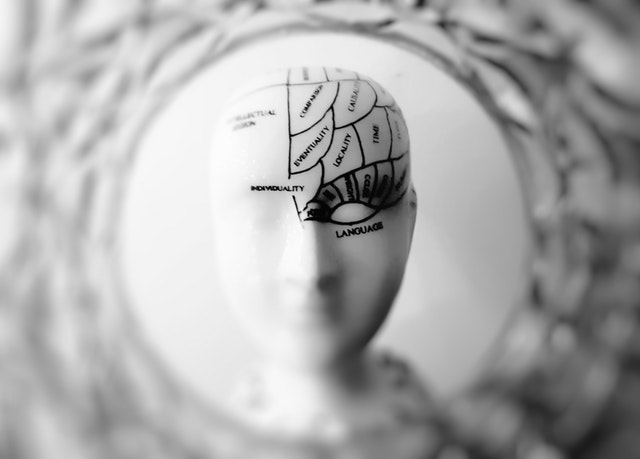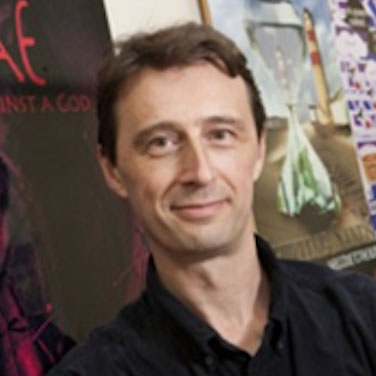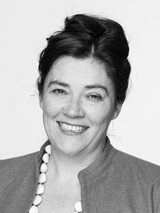2018 WiP Conference - Monsters: What have we created?

MONSTERS: WHAT HAVE WE CREATED?
22nd Annual Work in Progress (WiP) Conference
School of Communication and Arts, The University of Queensland
25 and 26 September 2018
Venue: UQ Art Museum, St Lucia
Keynote Speakers:
Professor Michael Balfour – Griffith University, School of Humanities, Languages and Social Science
Dr A.Frances Johnson – University of Melbourne, School of Culture and Communication
The School of Communication and Arts (SCA) at the University of Queensland invites you to attend the 22nd Annual 2018 Postgraduate and Early Career Researcher Work in Progress Conference.
- Fee $80
- Registration closes Friday September 14th, 2018
- Registration covers morning tea, lunch, afternoon for two days and dinner for one night
2018 marks the 200-year anniversary of Frankenstein – the novel written by Mary Shelley. In it, a scientist Victor Frankenstein, creates his own monster in a science experiment. Fast forward 200 years and some of the monsters which exist could rival Frankenstein’s frightening creature. Climate change is one of society’s biggest ‘monsters’ of our own creation along with the monstrous new issues surrounding misinformation or ‘fake news’. Increasingly the media is accused of vilifying certain groups and stereotyping minorities. Extremism, populism and more have created monstrous issues for humanity. What are these monsters and how are we responding to them through art, film, theatre, social media, communication, cultural studies, and literature? What are the implications for society if these monsters are left to fester and grow?
We are excited to announce we will be having a reading session for the creative writing students followed by a discussion about practice-led research.
Papers presented by UQ SCA students are eligible to be considered for the Dr John McCulloch Memorial Prize, worth $1000.
Topics may include but are not restricted to:
- Nature’s monsters – climate change, food scarcity, extinction, climate refugees
- Media monsters – fake news, data privacy, media illiteracy
- Media vilifications – stereotypes, typecasting, vilifications of minorities, ‘Othering’
- Humanity’s monsters – extremism, terrorism
- Frankenstein – related to the 200-year anniversary of Mary Shelley’s Frankenstein, gothic monsters, creatures, demons
- Creative works – their scope, intention, inspiration; the artist’s role/control over how it is received – multi-platform storytelling
- Etymology of ‘monster’; as a tool to demonstrate and warn of society’s ills.
Keynote Speaker Professor Michael Balfour Abstract
Mary Shelley’s Frankenstein is one of the most well-known, if least read, novels of the last century. Despite its clichéd distortions by popular cinematic culture the story continues to tap into a deep vein of our cultural imagination. It ricochets through gothic fiction, science fiction, fantasies and serious literature. The presentation will argue that the sin at the heart of the novel is not the creation of the monster, but Victor’s refusal to take responsibility for it, to accept it and love it. Shelley’s secular myth imagines a world in which God’s responsibilities are shifted on to humankind, revealing the flaws in our capacity to own the consequences of our clever inventions.
The presentation will take the Frankenstein myth as a starting point, and explore why and how the ‘ultimate’ monster archetype manifests itself in contemporary culture and in our lives (and yes that includes the monstrous inner world of postgraduate students).
I will also explore how the arts can contribute to, if not loving, then living with the monsters that inhabit our psyche. As indices of hope, I will draw on recent applied theatre projects that have worked with people from a refugee background, returning veterans, and with the incarcerated. The practice in these examples have attempted to help individuals and groups to deal with internal and external ‘monsters’ through using the arts to define and redefine possible lives. The presentation will argue that while there are many ways to manage our behemoths (through denial, chemicals or talk therapy) the arts can provide a unique alternative narrative that can undercut and embody monstrous creations not for the purpose of destruction, but of learning how to live with them with grace.

Michael Balfour is Chair and Professor of Applied Theatre and Deputy Head in the School of Humanities, Languages and Social Sciences at Griffith University. He is a theatre researcher and practitioner interested in the social and creative applications of the arts in a range of contexts. He has written widely on applied theatre, with a particular interest in theatre in conflict and peacebuilding, prison theatre, theatre and migration, theatre, mental health and returning military personnel, and most recently, creative ageing and dementia. His most recent publications include: Applied Theatre: Understanding Change (2018) (with Kelly Freebody) and ‘The politics of care: play, stillness and social presence’, in Peter Eckersall and Helen Grehan’s (eds) The Routledge Companion to Theatre and Politics (in press).
E.mail: m.balfour@griffith.edu.au
Keynote Speaker Dr A. Frances Johnson Abstract
Fearless speech: De-monstering portrayals of refugees in poetry and fiction
Monstrous imagery in poems and stories classically speaks to us of the uncanny, of the other/monster in ourselves. Beasts, demons, freaks and hybrid creatures have variously been written into global literatures since Virgil and Homer as symbolic expressions of collective cultural unease. Poems and stories productively express this dis-ease; they also show how fear of the monstrous sometimes brings communities together or drives a wedge between. Representations of refugees in public discourse are an example of both the former and the latter. What, then, of the ‘monstering’ of public language more generally in relation to vulnerable, displaced people seeking asylum in Australia? What role can literary writing play in the face of bullying political discourse?
This paper explores how recent and historical poems and stories ‘de-monster’ portrayals of asylum seekers. More specifically, I show how contemporary writers such as Behrooz Boochani, Jenny Erpendeck, Kit Kelen, Anthony Lynch, Marion Campbell, Ahmid Hashim and others ‘counter-frame’ (Maley 2016) negative representations of refugees, producing provocative and complex aesthetic literary expressions of ‘fearless speech’ (Foucault 2001).

A. Frances Johnson is an author and artist. She is Senior Lecturer in Creative Writing at the University of Melbourne and a former Head of that program. Her first novel Eugene's Falls (Arcadia 2007) retraced the life of 19th century romantic colonial painter Eugene von Guerard. Her second novel in progress, The Lost Garden, explores French first contact histories in remote southern Tasmania. She has special research interests in postcolonial novels and portrayals of colonial Indigenous figures in Australian literature. To that end, a monograph, Australian Fiction as Archival Salvage, was published by Rodopi/Brill (2015). Her poetry collections are The Pallbearer’s Garden (2008), The Wind-up Birdman of Moorabool Street (2012) and Rendition for Harp and Kalashnikov (2018). Awards for her work include the 2012 Wesley Michel Wright Prize and the 2015 Griffith University Josephine Ulrick Prize. She has recently returned from an Australia Council Fellowship in Rome at the B.R. Whiting Studio, researching positive images of people movements through historical and contemporary poetries.
Accommodation:
Nearest to the St Lucia Campus
- 63 Jephson Street, Toowong
- 07 3736 4400
- 2 Gailey Road, St Lucia
- 1800 637 662
- enquiries@stluciagardens.com.au
Nearest to Brisbane City
- 152 Alice Street, Brisbane
- 07 3221 3411
- 435 Coronation Drive, Auchenflower
- 07 3371 4000
Transport:
- Buses: there are two main bus hubs on the UQ St Lucia Campus - UQ Lakes, and UQ Chancellor's Place. If you are staying near St Lucia, you will arrive via Chancellor's Place on the 402, 411 or 412 bus.
- Ferry: there is a ferry stop on the UQ St Lucia campus.
- Train: the closest train station is Toowong; you will need to catch an additional taxi or a bus in order get to St Lucia campus.
- Details for these options can be found via the Translink Website: http://translink.com.au/
- Taxi: if catching a taxi, inform the driver to take you drop you off on Campbell Road which follows on from Sir Fred Schonell Drive.
We would like to acknowledge our generous sponsors and in-kind support:
Sponsored by the School of Communication and Arts
UQ Graduate School
The UQ Art Museum
Media and Production Support (MaPS) - School of Communication and Arts
The UQ Node of the Australian Research Council Centre of Excellence for the History of Emotions
Work in Progress (WiP) Conference Committee:
School of Communication and Arts | The University of Queensland | wip.uq2018@gmail.com
Venue
(James and Mary Emelia Mayne Centre (Building# 11))
St Lucia Campus
University of Queensland
